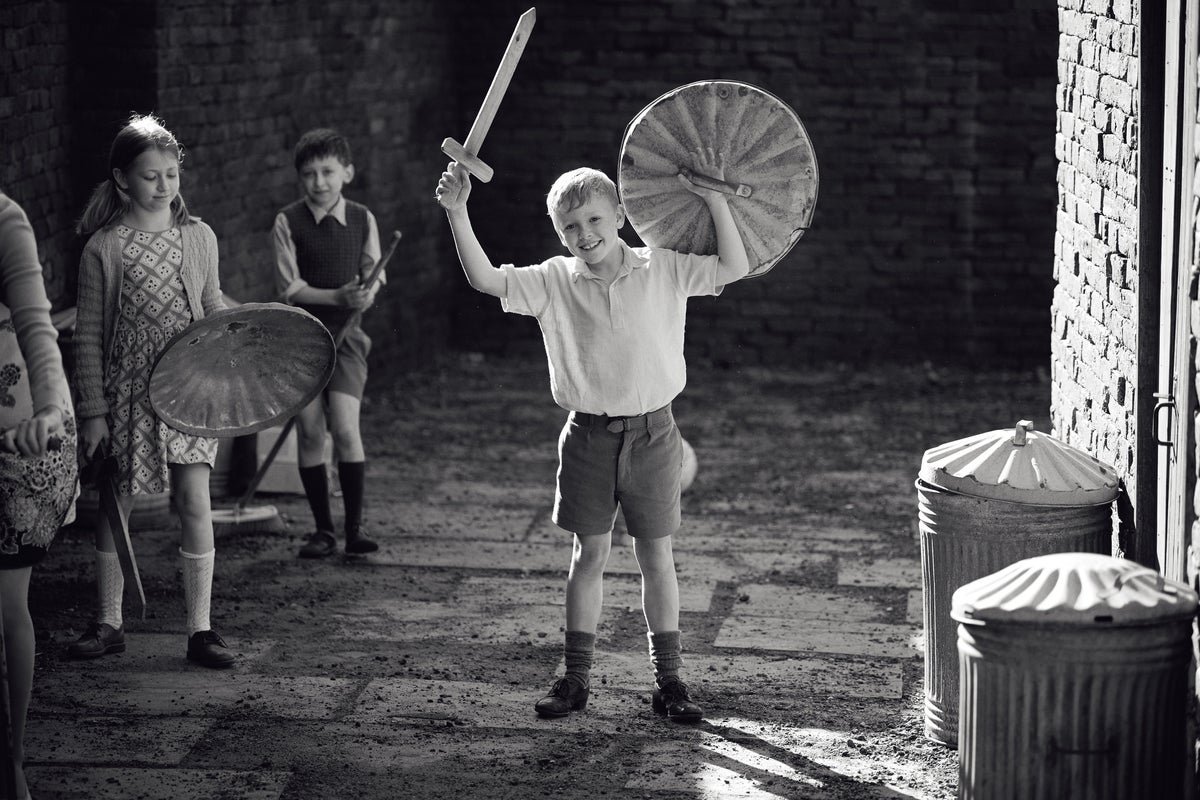Belfast
A beautiful movie, musing on the importance and extent of family. Much like family, though at times the film may frustrate, ultimately you feel more fully realised and whole on leaving the cinema than on entering.
Buddy (Jude Hill) is a young kid growing up in Belfast, Ireland. His poor but peaceful life is disturbed, however, when the growing troubles between Protestants and Catholics bursts over, leading to violence in his streets, the army in presence, and his father (Jamie Dornan) returned from his fly-in fly-out job in England concerned for his family. Buddy’s Pa feels the danger of these times is too much for his two sons and wife, and wants to move the family to England, but his Ma (Caitriona Balfe) loves Belfast, and has lived there her whole life; she doesn’t want to leave. Throw into the mix Buddy’s grandparents, Granny (Judi Dench) and Pop (Ciaran Hinds), who are dealing with Pops declining health, and you have a pressure cooker of danger, longing and memory; all while Buddy just wants to play in the street and romance his young classmate.
An evidently introspective and personal film from director Kenneth Branagh, Belfast is a quiet and explorative piece that in many respects seems told through the child’s eye. Whether it’s the slow parsing of information our lead character, Buddy, won’t have been privy to, or the often low camera angles - both upwards of adults, and cropped to remove upper halves of bodies out of the field of view - the film showcases life for a child during this period, in a world of gigantic happenings.
Presented in black and white with the occasional splash of colour, the film hints at modernity while maintaining a varnished sheen of remembered history. There are some striking visuals; whether it’s the initial riot, some crowded and gorgeous set decoration behind young Buddy’s grandparent’s house, or the flickering flames of a midnight neighbourhood patrol in the centre of a tiny street. The movie presents as art, almost as much as it does story. The visuals, even sans colour, capture the imagination and alight the mind, letting you chase down thoughts to fill in the gaps of these characters.
Buddy has a definite love of cinema, often taken by his grandma and family to see films of the period. The joyous charm with which this is presented brings a glowing warmth to the movie, and for much of the first two thirds of the film, these moments of levity and warmth glue together the family unit in our eyes; make us realise that and why these people love one another, despite the troubles afflicting them.
Performance-wise, the movie is full of gorgeous work. Dornan, continuing to distinguish himself as the go-to Irish leading man of the period, does great work as the compassionate, strong and kind father, while Caitriona Balfe as the mother is also fantastic. As Granny, Judi Dench does a heck of a lot with only a handful of scenes, and even fewer important dialogue moments. Similarly, as Pop, Ciaran Hinds has a lot of eye-twinkling gravitas to imbue in the film. Together, Dench and Hinds bring the emotional heart to the film; you may well cry at the trajectories their characters have, and their dialogue will stay with you long after leaving the cinema.
In the end, Belfast is a period piece that opens the eye to a deeply personal and individualistic perspective on one of the most recent armed conflicts in the Western world, and certainly one of the most recent significant religious conflicts. But it keeps all this as a background curtain to the story of a kid and his family; his love for his town, his burgeoning love of the pictures, and above all else, a family’s uncanny ability to grow, adapt and stay together, despite the troubles thrown at them.


